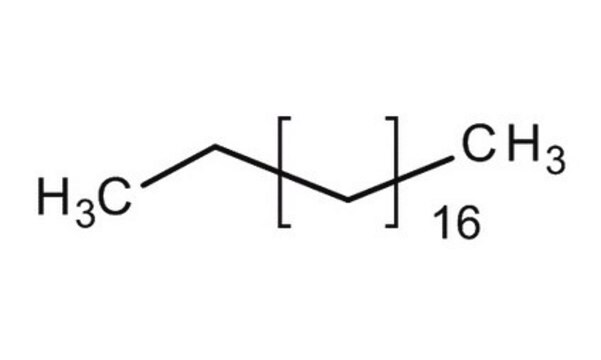W243205
Ethyl decanoate
≥98%, FCC, FG
Synonym(s):
Capric acid ethyl ester, Ethyl caprate
About This Item
Recommended Products
biological source
synthetic
Quality Level
grade
FG
Halal
Kosher
Agency
meets purity specifications of JECFA
reg. compliance
EU Regulation 1334/2008 & 178/2002
FCC
FDA 21 CFR 117
FDA 21 CFR 172.515
vapor density
6.9 (vs air)
Assay
≥98%
refractive index
n20/D 1.425 (lit.)
bp
245 °C (lit.)
density
0.865 g/mL at 25 °C
application(s)
flavors and fragrances
Documentation
see Safety & Documentation for available documents
food allergen
no known allergens
Organoleptic
apple; fruity; waxy; sweet
SMILES string
CCCCCCCCCC(=O)OCC
InChI
1S/C12H24O2/c1-3-5-6-7-8-9-10-11-12(13)14-4-2/h3-11H2,1-2H3
InChI key
RGXWDWUGBIJHDO-UHFFFAOYSA-N
Looking for similar products? Visit Product Comparison Guide
Storage Class Code
10 - Combustible liquids
WGK
WGK 2
Flash Point(F)
215.6 °F - closed cup
Flash Point(C)
102 °C - closed cup
Personal Protective Equipment
Regulatory Listings
Regulatory Listings are mainly provided for chemical products. Only limited information can be provided here for non-chemical products. No entry means none of the components are listed. It is the user’s obligation to ensure the safe and legal use of the product.
FSL
Group 4: Flammable liquids
Type 3 petroleums
Hazardous rank III
Water insoluble liquid
JAN Code
W243205-1KG:
W243205-50G:
W243205-BULK-K:
W243205-4KG-K:
W243205-20KG:
W243205-SAMPLE-K:
W243205-800G:
W243205-9KG:
W243205-20KG-K:
W243205-4KG:
W243205-SAMPLE:
W243205-1KG-K:
W243205-VAR-K:
W243205-9KG-K:
Choose from one of the most recent versions:
Already Own This Product?
Find documentation for the products that you have recently purchased in the Document Library.
Customers Also Viewed
Our team of scientists has experience in all areas of research including Life Science, Material Science, Chemical Synthesis, Chromatography, Analytical and many others.
Contact Technical Service










